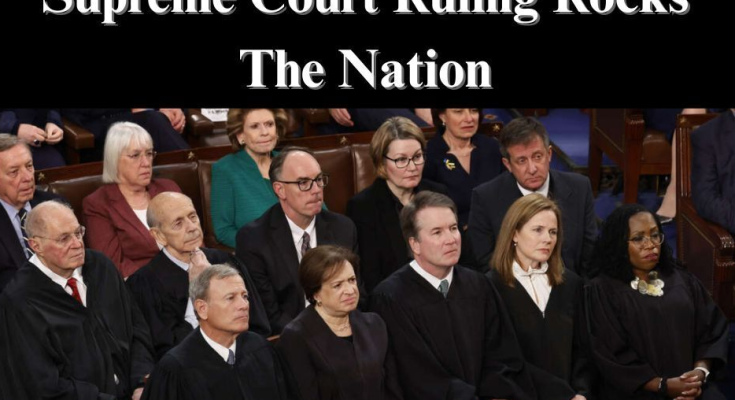
The United States Supreme Court dealt a severe blow to the abortion industry by permitting states to defund abortion providers such as Planned Parenthood.
In its 6-3 ruling in Medina v. Planned Parenthood South Atlantic, the court recognized that states have the authority to determine who is eligible for Medicaid financing and can instead finance groups that offer actual, complete healthcare.
For seven years, Republican South Carolina Gov. Henry McMaster has maintained his state’s policy of not using taxpayer cash to subsidize abortion clinics. South Carolina was represented in the Supreme Court by Alliance Defending Freedom, which received support from a large coalition that included the federal government and 18 states.
The Alliance Defending Freedom claimed that states should be able to redirect Medicaid monies away from the abortion business and toward legitimate health care providers who provide a wide range of services to women. The court’s decision last week empowers South Carolina to do exactly that.
Planned Parenthood, for example, collected $3.2 billion from taxpayers over five years. This is in addition to the hundreds of millions of dollars it receives annually from individual donations. Since the overturn of Roe v. Wade in 2022, Planned Parenthood has experienced a surge in fundraising, amassing more than $2.5 billion in net assets.
During the past five years, Planned Parenthood’s “national office has distributed more than $899 million to affiliates to help them deliver care, but none of it went directly to medical services.”
Planned Parenthood is now the nation’s second-largest distributor of harmful gender-transition medications, which it freely advertises and distributes to kids.
Because of this decision, South Carolina taxpayers will no longer have to fund Planned Parenthood’s subpar care for women or gender-transition medicines for children.
They are free to support the approximately 200 clinics in their state that provide high-quality, comprehensive treatment to women. Other states are allowed to do the same.
Trump has received a lot of good news from the Supreme Court lately.
The Supreme Court has given President Trump a string of important victories through an expedited procedure that does not need full briefs and arguments — and will most likely continue to do so.
The court’s “emergency docket” has been the focal point of its action throughout Trump’s second term, allowing him to carry out plans to dismiss government employees, deport large numbers of individuals, and prohibit transgender people from serving in the military.
The court’s decisions on those matters are all temporary, but even so, they represent a big victory for Trump, allowing him to carry out some of his most contentious agenda items.
When the Supreme Court decides to hear a matter on the merits, it normally requests that both parties provide written papers outlining their legal views, Axios noted.
It encourages outside experts and groups to file “friend of the court” papers, which might raise additional issues, and holds oral arguments before the justices determine how to rule.
The emergency docket, also referred to as the shadow docket, caters to cases that demand prompt resolution. It’s frequently invoked by detainees seeking a stay of execution (which the justices nearly invariably refuse).
Just last week, the court enabled Trump to move ahead with his plans for widespread firings across the federal government.
It enabled the government to deport a group of illegal immigrants to South Sudan, a war-torn country with which the migrants had no relationship, and other “third countries” that are not the United States or the migrants’ home countries.
The Supreme Court overturned lower-court decisions that limited DOGE’s access to Social Security information and subjected portions of its work to the Freedom of Information Act.
It also permitted the Pentagon to exclude transgender individuals from serving.
None of the decisions are definitive regarding the lawfulness of Trump’s proposals, but they do have an immediate effect.
They may never reach the merits stage, and even if they do, acts such as mass firings or relocating refugees halfway around the world are instantaneous.
Even if some firings are later deemed improper, it doesn’t mean all former employees will return.
A finding in Trump’s favor on the emergency docket may also imply that he will win on the merits.



